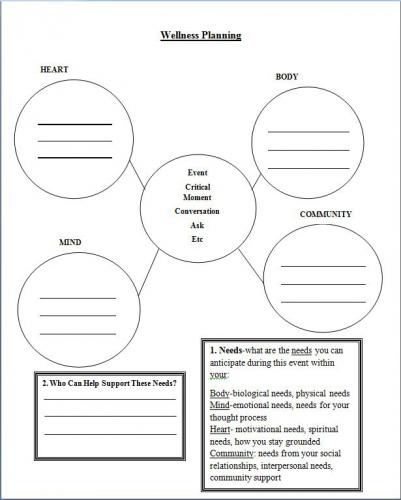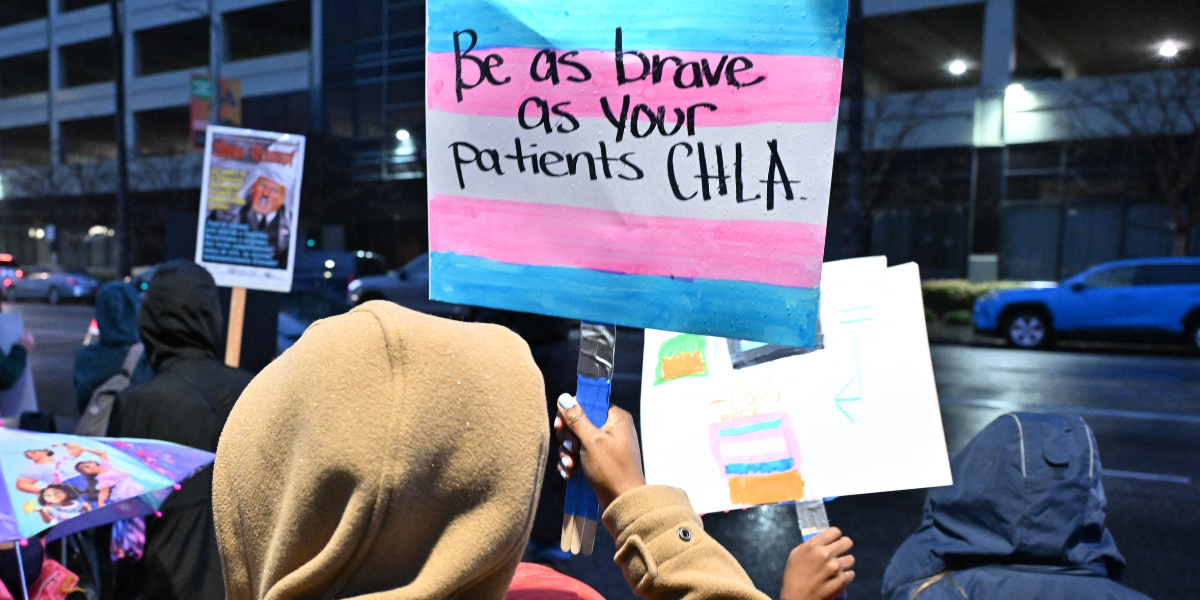feature image via Taylor Hatmaker
Welcome to Be The Change, a series on grassroots activism, community organizing, and the fundamentals of fighting for justice. Primarily instructional and sometimes theoretical, this series creates space to share tips, learn skills, and discuss “walking the walk” as intersectional queer feminists.
We all know we need to do self-care. We know this. But, honestly, self-care takes time and time isn’t something organizers and activists tend to have in abundance. For anyone with marginalized identities or at the intersection of marginalized identities, self-care is something that may just not feel possible, even if it’s more needed than ever. Having the funds or time to cook a hot meal, for example, may just not be realistic.
A few years back, there was a hefty debate in the community organizing world about self-care, started by a blog post on Organizing Upgrade by B. Loewe titled, “An End to Self Care.” The various responses both in agreement and not started a dialogue on the community care, self-preservation, movement sustainability, and basically the answer to the question Loewe posed originally:
“What must be done so that each one of us can maximize our participation in efforts that move us toward a world where we are more free?”
One discussion that came out of this was the radical idea of rejecting the binary of caring for yourself vs. caring for the movement. For organizers and activists, pulling yourself away from “the work” isn’t always healthy. Part of the reason we’re called to social justice is because it feels necessary and important and doing important work makes us feel good. Our work can be draining and simultaneously energizing.
There can be a symbiotic relationship between caring for our communities and caring for ourselves. Individual care is community care is individual care.
In other words, we are our best when we are investing in caring for ourselves and we are able to give more of ourselves to the community and to the work. We are also most able to care for ourselves when supported by our communities and when fed by our passions for fairness and equality.
When our communities are strong, we are strong.
Ways to Engage in Community-Oriented Self-Care
- Break Out of Isolation: Call a friend. Go to a meeting. Visit your loved ones.
- Create a Wellness Plan: This template from the Audre Lorde Project is a perfect place to start.

- Ask for Help: Don’t let pride or the myth of self-resilience stop you from asking for the things you need, whether that’s food, housing, money, or friendship and support.
- Do the Work You Love Most: Some parts of organizing work can be really draining or just not fun. Other parts are like an unlimited brunch buffet for our souls. Do the kind of work that feels awesome to give yourself a boost.
- Evaluate Your Compassion Satisfaction: Complete this Compassion Satisfaction and Fatigue Scale evaluating the last thirty days to get a better understanding of how helping others is impacting you positively and negatively.
- Create Space for Community Connection: Whether it’s a potluck meal, a speak-out, a support group, or a meet-up, invest time in making space for others to find safe space and engage in community-building.
- Combine Your Art and Caring Skills with Social Activism: Make art that speaks to your activist ideals. Teach a free yoga class for folks who might not otherwise have access.
Got other tips, tricks, advice, and thoughts on self-care and community care? Share’em in the comments. Meanwhile, do take care of yourself and each other!







